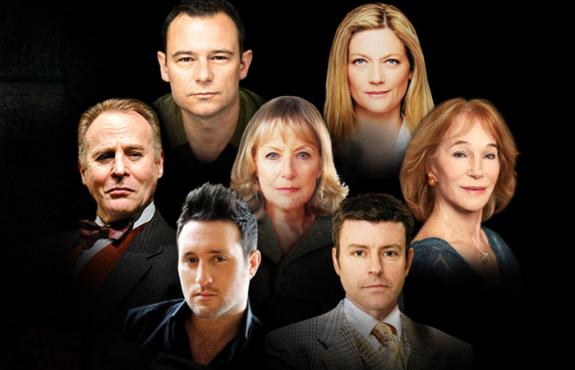Bill Kenwright’s Classic Thriller Company return to the King’s following last year’s Rehearsal for a Murder, with this, a Ruth Rendell mystery. The biographical programme notes provocatively point out that shortly before her death the late thriller writer was one of 200 who wrote to The Guardian opposing Scottish independence. Way to split your audience in two before the show starts!
Although set in 1978, the class system plays its part in this as much as any older works in the whodunnit canon. Eunice Parchman is the new housekeeper for the rich family in the big house, but unlike the rest of the domestic staff and her pal, the decidedly proletarian village postmistress, Joan Smith, who are out and proud about their pasts – jail sentences, prostitution, that kind of thing – she has another shameful secret that’s keeping her down…
Sophie Ward strikes the right chord in this central role, giving Miss Parchman the mopey, put upon air of Pauline Fowler at her most downtrodden. Her sidekick, Smith (an enjoyable turn from Deborah Grant) is Peggy Mitchell let loose in Pat Butcher‘s dressing up box – a nosey blonde bombshell in double animal print and stilettos.
Andrew Lancel knows the crim-catching business well from years in The Bill and brings a calm detachment to Detective Superintendent Vetch. Unfortunately this stage adaptation (Simon Brett and Antony Lampard) sticks him and fellow fuzz DS Challoner (Ben Nealon) with purely functional roles. In a manner at odds with modern “name” detectives, there are few biographical details, no depth of character, they don’t even need to do much sleuthing. You could easily dispense with one of them if their dialogue weren’t needed for exposition of evidence.
The plummy Coverdale family are suitably self-absorbed, with Rosie Thomson particularly effective as the mother, and pop fans of a certain era will be pleased with a decent showing from Blue’s Antony Costa as rough diamond gardener, Rodger Meadows.
As thrillers go, it’s less than edge of seat. Act One ends with an amusing sing-song from Parchman and Smith, rather than a cliffhanger. We’re still trudging through the details of the fateful evening in a series of flashbacks, with little evidence and few motives to mull over during interval drinks. Midway through Act Two you’re wondering whether it was any of them wot dun it.
In the end, the final reveal is a curious one, that says more about shifting social mores and notions of shame than the mind of a killer. A Judgement In Stone feels older than its 40 years both in structure and content, though that’s no fault of the company who go about their business effectively.
